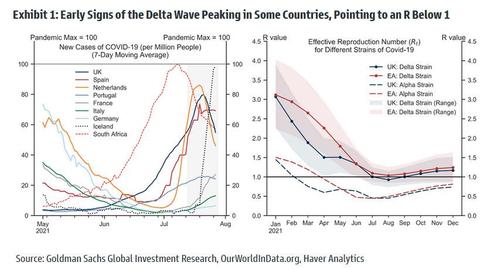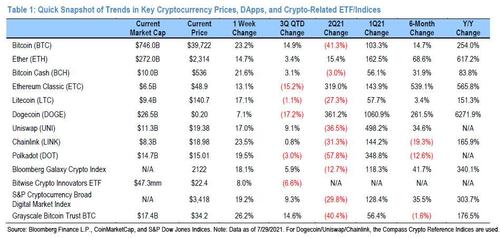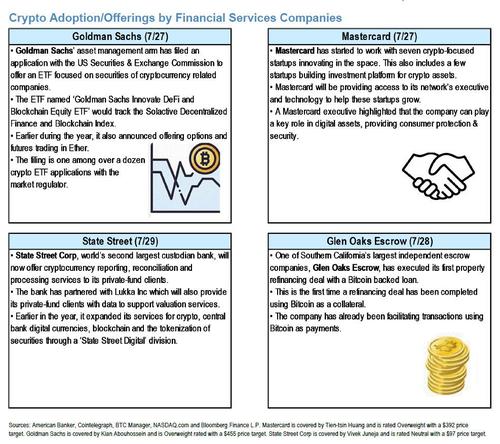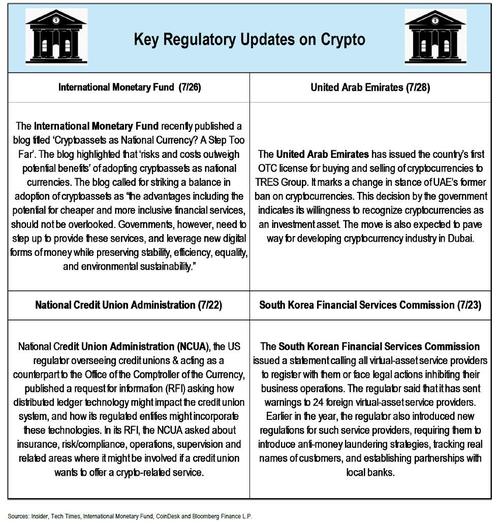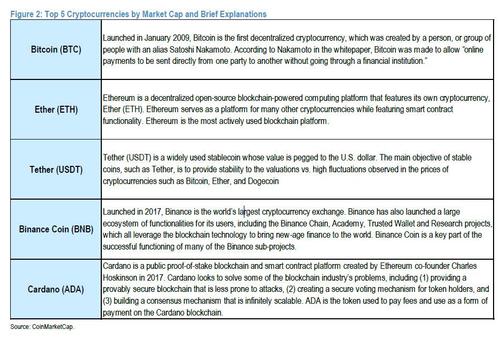Authored by Momica Showalter via AmericanThinker.com,
San Francisco’s broad-daylight retail heists have shocked the nation in their brazenness. They’ve triggered the closings of stores, such as Walgreens, and the shortening of hours from retail giants such as Target. Forty-four percent of city is planning to move out, with 80% citing out-of-control crime.
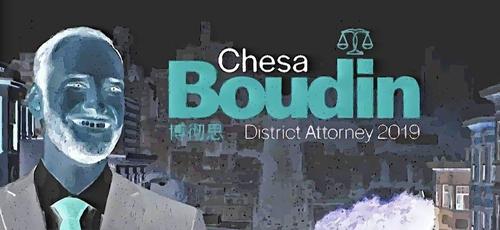
But the shoplifters have got a defender, too — in San Francisco District Attorney Chesa Boudin. So do the drug dealers. The only problems that Chesa sees are the victims.
Which tells us a lot about the state of moral bankruptcy of the wokester movement, and what the New Yorker dismisses as the “backlash.”
According to the Daily Mail, citing an interview in the New Yorker, after a viral video surfaced in June of a thief stuffing oodles of goods from a Walgreens into a trash bag and then riding his bike through the store unencumbered on the way out:
‘When I watch that video, I think about five questions that people are not asking that I think they should,’ Boudin told The New Yorker.
‘Is he drug addicted, mentally ill, desperate? Is he part of a major retail fencing operation?
‘What’s driving this behavior and is it in any way representative, because it was presented as something symptomatic?’
The question that doesn’t occur to him is whether the thefts are illegal. Or whether continuous unpunished crime is seriously disruptive to any society of lawful order.
In fact, according to the New Yorker, Boudin embraces the logic of looters from Black Lives Matter from over the summer:
Boudin said, “If Walgreens has insurance for certain goods or they expect a certain amount of loss, if they would rather not risk lawsuits or escalation to violence—then maybe that’s something we should know about.”
Well, gee, if they had insurance, then of course it’s all right, right, Ches? That was what the Black Lives Matter looters were saying as they hauled out the Nike tennis shoes and large-screen TVs.
He sounds like a sleazy defense attorney, crafting a case for a scummy defendant with nothing else for his defense than to blame the victim.
Worse still, he does the same thing for hardened drug dealers in the country illegally:
Greenberg showed me a video of Boudin at a town hall at which residents had asked what could be done about some drug dealers. Boudin noted, in his reply, that many of the drug dealers had been brought to the United States by human traffickers—that they were, in a sense, victims themselves. “He’s excusing the Honduran drug dealers,” Greenberg said. “Not holding them accountable greenlights.”
You see, they had a bad childhood, so dealing drugs is therefore all right.
The New Yorker piece is a total puff piece, giving Chesa’s point of view on several things with nothing to counter it. It describes the huge broad-daylight retail heist at Neiman-Marcus as ‘zany’ and actually kind of cute. Get a load of this:
Earlier this month, a bystander captured the final stages of a ten-person larceny of designer handbags from Neiman Marcus. One by one, they spill out the front door, each clutching oversized bags to the chest; the final thief races out carrying half a dozen handbags, still attached to a multipronged security chain. Their movements are encumbered, zany, almost Chaplin-esque; when they exit, some look uncertain about which way to run. This is disorder without menace, but not without effect.
Well isn’t that charming.
As for the Walgreens video of the shoplifter riding out:
The video crystallizes the subversive, Banksy-ish quality of the San Francisco theft wave.
It’s all so artsy, who couldn’t be cool with it?
Three big points from Chesa in the interview, however, do stick out:
One is that Chesa keeps claiming that crime in San Francisco is down, citing city statistics:
The way the video had been presented suggested that shoplifting had become a raging problem in San Francisco, but, he pointed out, the official data showed that over-all theft was down from the previous year.
Two is that he fails to cite the reason, even though the evidence is right in front of his eyes:
Boudin turned to the matter of the security guard: Why, Boudin asked, had he reacted so passively?
…here, too:
He mentioned a fact he often cites when confronted about property crime—that the police make arrests in just two-and-a-half per cent of reported thefts. “Maybe that’s a good thing—maybe that means they’re prioritizing murders,” Boudin said.
Might it occur to this Machiavel that these crimes are not being reported given his refusal to prosecute? If every theft is considered by the D.A. a junk case not worth prosecuting, then maybe people don’t bother reporting crimes anymore. Boudin announced early on that he would refuse to prosecute “quality of life” crimes, such as noisy hookers in the upstairs apartment and drunks peeing in doorways, a detail the New Yorker left out, along with young Chesa’s early associations with Venezuelan Marxist dictator, Hugo Chavez, a man who turned Venezuela into the mother of all crime-pit hellholes. It did, however, cite this:
His office eliminated cash bail and announced that it would no longer use gang affiliation to seek longer sentences or bring cases in which police pulled over a car as pretext for a drug search. When the pandemic shut down San Francisco, and infections began to rise in prisons around the country, Boudin saw an opportunity for decarceration; by May, 2020, he had cut the city’s jail population from a daily average of about twelve hundred people to about seven hundred.
Let them out, refuse to prosecute, and somehow, crime is down?
When crime is never prosecuted, and reporting is simply futile, people don’t report crimes. Why bother? Nobody’s going to do jack.
Third, he can’t stop blaming the victim. Get a load of his inability to use the word ‘rob’:
Boudin said, “If your car gets broken into, you’re outraged or angry or inconvenienced or incurred an expense. If your home gets broken into, it feels much scarier.”
Getting your car stolen with payments still due on it, and being forced to pay $600 for a police tow you didn’t ask for once the car is recovered (this happened to me in the ’90s), is merely an “inconvenience,” you see, an expense incurred, something you can put on your expense sheet or tax loss returns the way rich people do, same as Walgreens can claim insurance. You shouldn’t be upset about it. Nowhere does Boudin ever use the term ‘robbed’ or issue recognition that most people don’t have expense sheets or tax qualifications, and can only eat the loss.
As for public sentiment turning against the current crime wave, Chesa explains that it’s all in their heads:
He said, “From a public political standpoint, what matters more is the ups and downs and if people feel less safe. It doesn’t matter that crime is down. People feel less safe. They want to feel safe.”
Maybe they don’t feel safe because they aren’t safe. Maybe they’ve been robbed one time too many.
The recall petition seems to suggest just this kind of trouble, but Boudin compares it to Trumpism, “Trump’s big lie,” as he stated at a July 9 Mission District community meeting. It’s not about crime, you see, it’s about closet-Trump people somehow living in a place like San Francisco, with anyone who doesn’t like his act rightfully name-called a Republican. In Chesa’s passive-aggressive, Ayers-like mind, that’s something that ought to guilt-trip the locals, though it may in the end annoy them.
The New Yorker, still having Chesa’s back, calls it “backlash,” Chesa being innocent and all, with none of the public discontent having anything to do with his actions you see. Just “backlash.”
It’s unknown whether two recall petitions against him are gathering all the required signatures. The New Yorker writer dismisses both as unlikely to succeed, but the signature-gatherers say they are making progress ahead of the August and October deadlines.
According to the California Globe:
“Both Newsom and Boudin had their first recall petitions filed one year after they took office, the minimum to do so in California,” said former lobbyist Harry Schultz, who has monitored and advised on recall campaigns in California since the late 90’s, in a Globe interview on Thursday. “As you mentioned, both saw support increase following huge nationwide stories that painted them negatively and decisions that proved to be very controversial. And both recall movements have been doing quite well despite being in largely Democratically held areas, Newsom having California and Boudin being in the more liberal San Francisco County.”
“For them to face a recall in California it’s incredible, but it goes to show just how upset they’ve made people. When voters say we want someone not as extreme as you, or in Newsom’s case, a Republican, in a state where Democrats outnumber Republicans four to one no less, well, they did something wrong.”
“And now Boudin is starting to go through what Newsom did recall-wise this year. These huge spurts of funding against him are a big indicator there. I wish we had signature data, but once we have that, or at least see what the group with the August-expiring petition wound up with, we can see where we are big-picture wise when it comes to a possible Boudin recall either this year or next.”
One can only hope that with revolting leftist who blames victims, defends shoplifters, stands up for drug dealers, abetted by a press that calls crime ‘zany,’ that San Franciscans will finally come to their senses.


